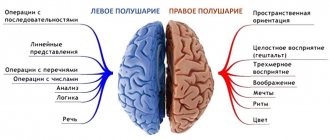Many of us, at least once in our lives, have been involved in a situation where it was necessary to provide assistance to a person who has fainted, and some have even found themselves in the role of a victim. The most common symptoms that precede the onset of fainting are most often darkening of the eyes, which may be accompanied by tinnitus, general weakness, nausea and dizziness.
Darkening in the eyes occurs quite often in people and can be not only simply a consequence of a person’s overwork, but also a harbinger of serious health-related complications.
Causes
Darkening of the eyes can be a consequence of two main fundamental reasons, the first of which is the lack of oxygen and various nutrients that should have reached the brain. The second may be pathology or disorders of the visual system.
Darkening of the eyes is often the first symptom, followed by dizziness or fainting.
More often than not, most fainting and darkening of the eyes that are common in everyday life are low-risk and do not indicate vital health problems or damage. But sometimes such phenomena indicate the development of quite serious processes in the human body and require urgent contact with doctors, where, after a thorough examination and possible confirmation of negative changes in the body, a serious course of treatment can be prescribed. However, it is worth emphasizing that the treatment will not be the consequence, which is darkening in the eyes, but the root causes that caused this failure.
Content:
- Causes
- Safe causes of darkening of the eyes
- Darkening of the eyes from disease
- Characteristics of diseases
- Local visual problems
- First aid
- Diagnosing the problem
- Preventing dark eyes
Reasons you can't ignore
Sometimes a person’s vision becomes dark and dizzy due to various diseases, including:
- Vegetovascular dystonia. The head may not only feel dizzy, but also hurt. Painful sensations are localized in the temples and in the back of the head.
- Cervical osteochondrosis. At the same time, a person’s head becomes dizzy and darkens, most often in the morning and evening. The attack intensifies when turning the head, bending over, or changing body position.
- Migraine. People with migraines experience severe headaches and dizziness, and may experience tinnitus. Patients often complain of increased photosensitivity and nausea.
- Diseases of the inner ear, which may be associated with disturbances in the functioning of the vestibular apparatus.
- Previous injuries to the skull and brain.
- Trinitarian neuralgia. At the same time, the person’s vision becomes dark. Treatment must be immediate, as the disease can cause serious complications. Most often, antibiotics are required.
- Cancerous tumors. Attacks of dizziness and darkening of the eyes will occur on a regular basis.
- Orthostatic hypotension. This pathology is associated with somatic and neurological disorders, which leads to a sharp decrease in blood pressure. The body has difficulty adapting to rapidly developing hypoxia, which leads to an attack of dizziness and darkening of the eyes. Most often this situation happens after a night's rest. The severity of symptoms and their duration may vary. Sometimes patients even faint. In addition, sweating may increase, and pain may occur in the epigastric region. Psychosensory impairment is a severe manifestation of hypotension. The disease requires high-quality therapy.
- Anemia, accompanied by a decrease in the level of hemoglobin in the blood. Normally, the blood contains a large number of red blood cells (erythrocytes), which are responsible for transporting oxygen to tissues and organs. With anemia, the body will suffer from oxygen starvation. First of all, this affects the state of the brain. Therefore, anemia is always accompanied by attacks of dizziness. The patient's skin turns pale and weakness increases. The disease can be triggered by various pathologies of the digestive system, growing tumors, etc.
- People with strokes may develop dizziness and blurred vision. In this case, arteries in the brain rupture, which leads to tissue damage. This condition requires emergency medical care.
- Attacks of dizziness plague patients with cardiovascular diseases, as they always provoke a disruption of blood flow to the brain.
- Hypoglycemia with a drop in blood sugar levels causes a patient with diabetes to become dizzy and have dark vision. In severe cases, the person may even fall into a coma.
- Diseases of the organs of vision. Dizziness often develops with cataracts, as the deterioration of blood flow in the eyeball leads to a disruption in the transmission of information to the brain.
If a person feels dizzy all the time, and also gets dark in the eyes, you need to consult a doctor. Ignoring such symptoms will lead to serious consequences. The doctor will prescribe a comprehensive diagnosis to the patient and then select the necessary treatment.
Safe causes of darkening of the eyes
Overwork and excessive stress, which accompany the lives of most students, athletes, and some workers overloaded with responsibilities, can often lead to darkening of the eyes. With all this, there is also tinnitus, a general deterioration in hearing, loss of orientation in space, but, as a rule, there is no pain. Even with such symptoms, it is better to consult a doctor and conduct examinations for a qualified conclusion to find the cause and source of the problems, as well as draw up a plan for getting rid of the negative consequences and not repeating this in the future. Based on this, relatively negative reasons include overwork and its subtypes, as well as a reduced level of hemoglobin.
Quite often, darkening of the eyes and malaise occurs due to a drop in blood glucose levels in the case of diet, from overwork and exhausting physical activity, or in the case of strong emotions that a person experiences.
After confirmation of precisely such reasons, a person will need significant time for rest, good nutrition and a transition to a healthy lifestyle. You will also have to give up stress for a while.
What to do if your eyes suddenly darken?
If darkening occurs after a sudden change in body position, it is recommended to take a comfortable position and remain motionless for several minutes, while closing your eyes. In case of a prolonged attack of hypotension, you need to lie on your side - preferably on a hard and flat surface. On the verge of fainting, it is advised to call for help and sit on the ground, tilting your head to your knees so that the blood flows to the brain.
Remember that with frequent manifestations of this condition and prolonged attacks of hypotension, you must undergo an examination and take a blood test.
The online store Lenzy.ru offers a large selection of high-quality contact vision correction products. We will promptly advise you and help you place your order!
Darkening of the eyes from disease
Darkening in the eyes can occur in the morning when a person gets out of bed, with sudden movements of the body and turns of the head and torso, and also occur with strong physical stress on the person’s body. Such cases are often accompanied by headaches, nausea and vomiting. The latter signs are more serious and may be a confirmation of the following diseases:
- hypotension;
- vegetative-vascular dystonia;
- all kinds of diseases caused by infections;
- diseases of the nervous system.
4.Treatment
If you see double, the most important thing is to find and treat the cause. In some cases this really helps.
- Eye muscle weakness or injury is treated with eye surgery;
- Myasthenia gravis is treatable with medications;
- Blood sugar levels in diabetes can be controlled with medications or insulin.
If a way to cure double vision has not been found, there are measures that can help reduce this symptom. This sometimes requires wearing an eye patch or special prism glasses to minimize the effect of double vision.
Characteristics of diseases
The consequence of hypotension is a negative effect on brain cells due to oxygen starvation. With this syndrome, blood pressure drops significantly, because of this the brain does not receive enough oxygen and its cells begin to die, which is precisely manifested by darkening of the eyes, as well as headaches and nausea. Like any other serious health problem, this requires a certain course of treatment and a review of the patient’s lifestyle.
Vegetative-vascular dystonia has similar symptoms. The causes here are extensive and require long-term rehabilitation treatment.
If the problem with darkening of the eyes is caused by an infection in the body, the doctor will prescribe antibacterial drugs, which, along with eliminating the infection, will lead to the disappearance of symptoms associated with vision, headache, weakness and lethargy.
Also, darkening in the eyes is included in the primary list of factors that may indicate diseases such as osteochondrosis, various aneurysms, compression of arteries and nerve endings. In such situations, darkening and pain occur only with certain movements and positions of the body or its parts and will most often be the first symptoms of the emerging disease.
The main types of diseases that lead to darkening of the eyes include diseases of the thyroid gland, malfunctions of the heart valves and disruption of metabolic processes in the body. In the case of such problems, the phenomenon will be only one of a whole complex of symptoms.
Diseases that cause fainting
Patients with arrhythmia may experience fainting because the blood supply to the brain is sharply reduced. With bradycardia, symptoms of loss of consciousness are also observed. The reasons are a sharp, almost instantaneous drop in heart rate to 30 or even 20 beats per second when the norm is 65-72.
- In addition, patients may need help with fainting:
- pulmonary hypertension;
- dehydration;
- Parkinson's disease;
- with aortic stenosis;
- diabetes mellitus
Local visual problems
Do not forget that sometimes the cause of darkening in the eyes can be problems that are associated only with the visual analyzer itself. Among them are the following:
- visual field defects;
- violations of the integrity of the optic tract;
- optic nerve diseases.
Darkening is caused by pathological loss of visual fields. A sudden movement in this case, or a sharp turn of the head can cause such a reaction in the eye.
Patients with glaucoma and people with farsightedness and myopia also complain of similar problems after prolonged visual strain.
Problems can arise when the signal from the eyes to the brain is disrupted, which occurs when the optic nerve or optic tract becomes spasmed or paralyzed.
To determine an accurate diagnosis that will reliably show the source of the problem and possible ways to eliminate it, a comprehensive ophthalmological examination will be required, including ophthalmoscopy, refractometry and several other manipulations that the doctor deems necessary in a particular individual case.
Causes of frequent fainting
The causes of frequent fainting are classified into a separate group. They are usually associated with various mental disorders that manifest themselves periodically, for example, hysterical neurosis. A sudden disruption in blood flow can occur with epilepsy. Often first aid for fainting is necessary for people with low blood pressure and diabetes. A drop in vascular tone can cause fatigue, neurosis, and even a simple transition from a sitting state to a standing state and vice versa.
There are also specific causes in women and men that lead to short-term loss of consciousness.
First aid
Symptoms of darkening of the eyes appear very quickly, so their manifestation can be noticed and the negative consequences of this type of incident can be minimized, including strong falls, bumping into surrounding objects, and loss of balance. If such symptoms occur, the best solution is to sit or lie down, provide fresh air, drink cold, clean water or sweet tea.
If darkening of the eyes is accompanied by fainting, then it is recommended to lay the person on his side, in order to avoid swallowing the tongue when relaxing, it is better not to raise the head, so as not to interfere with the flow of blood to the brain. It is also permissible to use ammonia or splashes of cold water to try to revive the person.
First aid for fainting:
- position the patient in such a way as to improve blood supply to the head - raise your legs and try to lower your head a little lower than your body;
- loosen the patient's collar, open the window in the room for air access;
- Sprinkle water on your face, apply ammonia to your nostrils;
- the patient has come to his senses - offer him something sweet;
- If possible, give an intravenous injection of glucose - this will improve blood circulation.
If help for loss of consciousness is provided in a timely manner, the person will feel better within a few minutes.
Diagnosing the problem
If you suspect such a problem, you should immediately consult a therapist and ophthalmologist. If this symptom is not a consequence of overwork, then a series of studies are prescribed.
These examination methods include the following four main types:
- MRI of the brain.
- MRI of the orbits.
- Computerized perimeter visual field testing, which can detect scotomas.
- MRI of the vessels of the neck and head, which diagnoses disorders in the circulatory system.
It is worth remembering that after visiting a doctor with a similar problem, a patient complaining of darkening in the eyes must be prepared for the fact that he will have to clearly answer many questions of interest to the doctor. It is necessary to describe in as much detail as possible what exactly the nature and signs of the symptoms are, how often the most serious of them or maximum darkening occur, whether the person has previously experienced injuries associated with damage to the skull and brain, and whether there have been certain diseases recently. Only after listening to a detailed answer from the patient, the doctor can prescribe the necessary examination with research from one or another specialist, and subsequently save the person from this serious problem.
Why does the eye twitch
Movements of the eyelid muscles that occur against a person’s will for some time are called nervous tics (hyperkinesis). You can suppress it, but not always and not for long. There are many reasons for this phenomenon in adults:
- Prolonged stress, emotional shock, strong anxiety, worries, that is, all situations associated with muscle tension. Myocamia (involuntary, spontaneous contraction of the muscles of the lower and, less commonly, upper eyelid) is provoked by a false signal sent to the brain by excited neurons.
- Lack of sleep. But if previously it was believed that the norm for an adult is 8–9 hours, now experts say that this indicator is individual for each person. In any case, if the body does not have enough sleep for proper rest, then it makes itself felt, including tics.
- Avitaminosis is a lack of vitamins.
- Electrolyte imbalance due to a lack of calcium, magnesium, and other microelements in the body is the result of poor nutrition.
- Eye strain from prolonged use of a computer and other new-fangled gadgets, excessive viewing of television programs, reading in poor lighting.
- Side effect of certain medications. Therefore, it is recommended that before taking any drug, you carefully study the attached instructions.
- Excessive passion for drinks containing caffeine - tea, coffee, some types of soda.
- Eye injury, foreign body or irritating substances entering it.
- Bad habits that cause overstimulation of the nervous system - drinking alcohol, smoking.
- Dry mucous membranes, so-called “dry eye”. The cornea is not properly moistened with tear fluid, and the neurons send the brain a false impulse.
- Organic damage to the central nervous system, leading to increased neuro-reflex excitability and decreased muscle tone and reflexes.
- Exacerbation of eye diseases - blepharitis, conjunctivitis, etc.
- Weakened immunity after surgery, influenza, acute respiratory infections, acute respiratory viral infections and other infectious diseases.
- Sore throat – chronic tonsillitis. Frequent swallowing of saliva due to illness causes spasm of the eyelid muscle.
- Involuntary movement of the eyeballs - nystagmus.
- Facial hemispasm is a lesion of the facial nerve.
- Serious diseases, symptoms include eye tics - brain tumor, Bell's palsy, Tourette's syndrome, encephalitis, Parkinson's disease.
Treatment
Drug therapy involves taking certain drugs that reduce the intensity of tics, mild sedatives and sedatives or, in severe cases, strong ones:
- tranquilizers – eliminate anxiety, irritation, fear;
- anticonvulsants – remove cramps of facial muscles;
- antidepressants – relieve anxiety and anxiety;
- sedatives – relieve fatigue, tension, normalize sleep.
Pharmaceutical preparations include tinctures of valerian and motherwort, as well as vitamin complexes containing calcium and magnesium.
If spasms are symptoms of a disease, medications are also prescribed to treat it.
The most affordable treatment option is traditional medicine . You can put compresses on your eyelids with decoctions of geranium, wormwood, chamomile, drink infusions of herbs or hawthorn, teas with the same chamomile, lemon balm, and mint. But this should be done carefully, since allergic reactions to the listed plants are possible.
Such ancient Chinese treatment as acupuncture can also be used to treat hyperkinesis. The impact of needles on certain areas of the body, muscles, directs vital energy to bring the nervous system back to normal.
A relaxing head and neck massage helps reduce muscle activity . It improves their blood supply, relieves tension and reduces the excitability of the central nervous system.
Special exercises – palming – are also useful for relaxing the eye muscles:
- blink for a while and close your eyes tightly so that a tear appears;
- rotate the eyeball;
- look up and down, left and right;
- close your eyelids and relax.
Essential oils of cinnamon, geranium, lavender and others reduce the frequency of nervous tics and relax. You can take a bath with them or put a few drops on your pillow to sleep.
If treatment is not started in time, this will lead to the spread of tics to other parts of the face and body - cheeks, lips, limbs.









